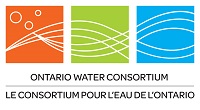Scientific Research and Development Tax Incentive Programs
Scientific Research and Experimental Development (SR&ED) Tax Incentive Program – (FEDERAL)
The SR&ED Program is a federal tax incentive program to encourage Canadian businesses of all sizes and in all sectors to conduct research and development (R&D) in Canada that will lead to new, improved, or technologically advanced products or processes. The SR&ED Program is the largest single source of federal government support for industrial R&D. Claimants can apply for SR&ED investment tax credits for expenditures such as wages, materials, machinery, equipment, some overhead, and SR&ED contracts.
For complete details about this program, visit the CRA website at: http://www.cra-arc.gc.ca/txcrdt/sred-rsde/menu-eng.html
Ontario Research and Development Tax Credit (ORDTC) – (ONTARIO)
The ORDTC is a non-refundable tax credit, which is available to corporations that carry out scientific research & experimental development (SR&ED) work in Ontario. This program is administered by the Canada Revenue Agency (CRA) on behalf of Ontario through the federal income tax system. The ORDTC provides a 4.5 per cent tax credit based on eligible SR&ED expenses carried out in Ontario. The credit may be used to reduce corporate income tax payable. Any unused credit may be:
- carried back three years to tax years ending after December 31, 2008 or
- carried forward 20 years
For complete details about this program, visit the CRA website at: http://www.cra-arc.gc.ca/tx/bsnss/tpcs/crprtns/prv/on/rd-eng.html
Water Research Foundation – Request for Proposals
The WRF recently announced a Request for Proposals for targeted projects within its Emerging Opportunities Program and Focus Opportunities Program. For complete details, visit the Foundation’s website at: http://www.waterrf.org/funding/rfps/Pages/current.aspx
Emerging Opportunities Program
Water and Wastewater Utility Energy Research Roadmap http://www.waterrf.org/funding/rfps/RFPs_nonsolicited/RFP_4356.pdf
Focus Opportunities Program
Integrating High Efficiency Standards, Building Codes, and Technology into Demand Forecasting
Focus Area Development Workshop –Integrated Water Management: Planning for Future Water Supplies
Terminology for Improved Communication Regarding CECs
Identifying and Evaluating Opportunities for Reducing Variability of Utility Revenues
Guidance and Strategies for Determining When It Is Cost Effective to Use Condition Assessment Technologies on High Consequence Water Mains
Water Use in the Multi-Family Housing Sector
Optimizing Biofiltration for Various Source Water Quality Conditions
Cost-Effective Cr(VI) Residuals Management Strategies
Customer Assistance Programs for Multi-family Residential and other Hard to Reach Customers
Uncertainty in Long Term Water Demand Forecasting
Simultaneous Removal of Multiple Chemical Contaminants Using Biofiltration
GAC Control of Regulated and Emerging DBPs of Health Concern
Bench-Scale Evaluation of Alternative Cr(VI) Removal Options for Small Systems
Scoping Study to Review Contributions of Chromium to Drinking Water from Corrosion in the Distribution System
Collaborative Research and Training Experience Program (CREATE)
Natural Sciences and Engineering Research Council (NSERC)
Deadlines:
Letter of Intent: May 1
Full Application: September 22 (By invitation)
The CREATE Program supports the training of teams of highly qualified students and postdoctoral fellows from Canada and abroad through the development of innovative training programs that:
encourage collaborative and integrative approaches, and address significant scientific challenges associated with Canada’s research priorities; and
facilitate the transition of new researchers from trainees to productive employees in the Canadian workforce.
These innovative programs must include the acquisition and development of important professional skills among students and postdoctoral fellows that complement their qualifications and technical skills. These programs should also include the following as appropriate:
student mobility, nationally or internationally, between individual universities and between universities and other sectors;
interdisciplinary research within the natural sciences and engineering (NSE), or at the interface between the NSE and health, or the social sciences and humanities. However, the main focus of the training must still lie within the NSE;
increased collaboration between industry and academia; and
with the addition of the industrial stream, an additional objective is to support improved job-readiness within the industrial sector by exposing participants to the specific challenges of this sector and training people with the skills identified by industry.
Industrial Stream NOTE: (Up to 50 percent of the CREATE grants will be dedicated to the industrial stream)
The program’s objectives is in line with one of NSERC’s Strategy for Partnerships and Innovation goals to connect people and skills, more specifically to place additional qualified candidates within Canadian companies. With the focus on developing skills that will be useful for the transition to the workplace, the CREATE Program is a great asset to industry—which requires not only technical skills, but professional skills.
It is expected that linkages between industry and academia will be enhanced, and that Canada’s People Advantage will be improved by increasing the supply of highly qualified personnel (HQP) who are “employer-ready” and can generate immediate results after graduation, improving job readiness as an immediate benefit to the industrial employer.
At least 60 percent of the CREATE funding will be directed toward the following NSERC priority areas:
- Environmental science and technologies;
- Natural resources and energy;
- Manufacturing; and
- Information and communications technologies.
For more information, visit: http://www.nserc-crsng.gc.ca/professors-professeurs/grants-subs/create-foncer_eng.asp
In addition to the above funding programs, the following is an ongoing opportunity
MITACS
MITACS Accelerate Internships – Standard
Mitacs-Accelerate is Canada’s premiere research internship program. It connects companies with over 50 research-based universities through graduate students and postdoctoral fellows, who apply their specialized expertise to business research challenges. Interns transfer their skills from theory to real-world application, while the companies gain a competitive advantage by accessing high-quality research expertise.
MITACS Accelerate Clusters
Mitacs-Accelerate clusters are an alternative for larger research projects involving multiple Graduate students and/or Post-doctoral Fellows. Applicants may apply once for an Accelerate Cluster involving a minimum of three interns, at least six 4-month internship segments, and a minimum of one industrial partner.
For more information, please contact Anna Ziolecki or visit the MITACS website.

